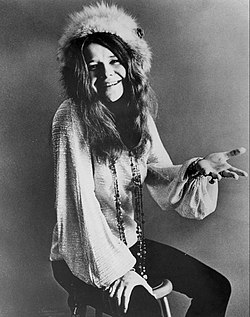Female performers in hard rock music
The relationships between female performers in hard rock music versus amateur and professional critics as well as the general public and specific groups of fans who listen to those songs have been a topic of intellectual analysis over multiple decades.
[1][2] Publications such as the online news service Consquence have described cultural changes after the end of the 20th century and onwards with respect to women in hard rock music, with a June 2002 piece on musician Lzzy Hale of the band Halestorm detailing her account of the "night and day" evolution to the extent that trends have "completely flipped."
Atlas argued that popular stereotypes and other expressions of prejudice in American society focusing on gender identity warped musical production, with her remarking that this intellectual framework meant that hard rock's presentation as "raw, aggressive, driving, [and] electric" became forcibly divorced from "our culture's assessment of the essence of femininity".
[1] Prominent examples of female hard rock vocalists include Janis Joplin, regarded as one of the most iconic women in heavy music who's "tragic" death early in life "left a void", as well as Grace Slick, known for rising to fame as a member of the band Jefferson Airplane.
"[2] Publications such as the online news service Consquence have described cultural changes after the end of the 20th century and onwards with respect to women in hard rock music, with a June 2002 piece on musician Lzzy Hale of the band Halestorm detailing her account of the "night and day" evolution to the extent that trends have "completely flipped."

